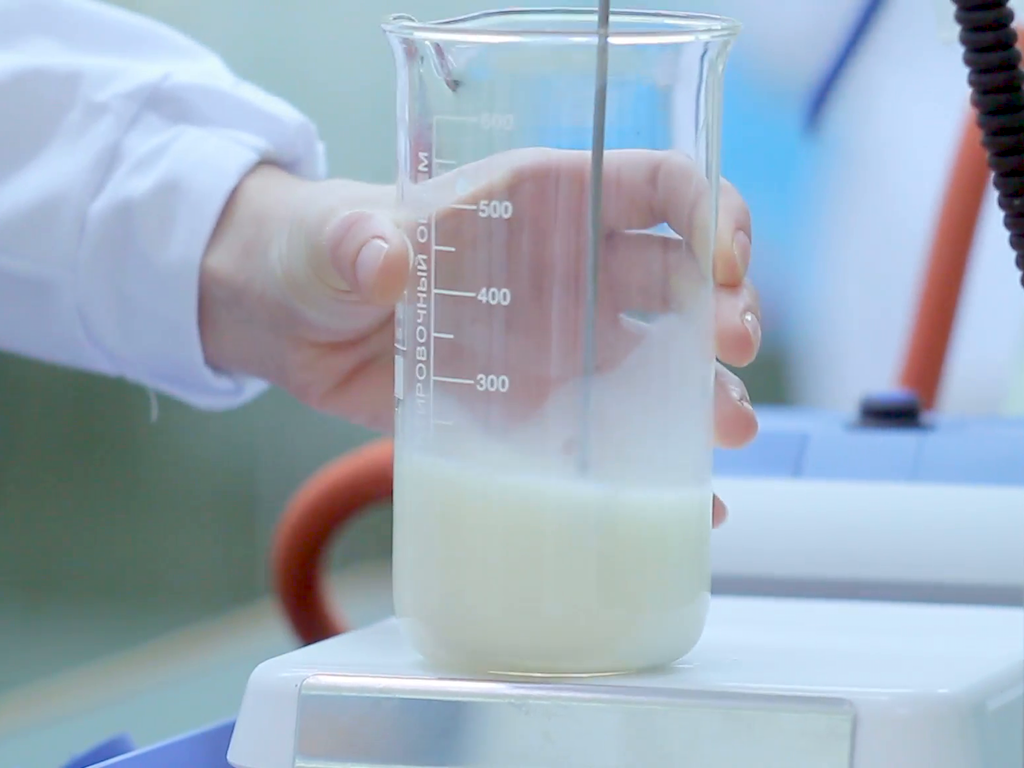3 Mins Read
Singapore-based biotech startup TurtleTree Labs is developing dairy milk in laboratory settings, which will come at a fraction of the environmental footprint when compared to conventional dairy milk. By producing lab-grown milk that recreates the exact composition, functionality and taste of milk, TurtleTree Labs hopes to disrupt a multibillion dollar industry that is a major part of our currently unsustainable global food system. This comes at a time when predictions about Big Beef and Big Dairy’s imminent industry demise are making global headlines, thanks to emerging food technologies that offer consumers better nutrition without the environmental cost. While many regional foodtech companies are working to create “clean” meat alternatives, and while there are regional plant-based dairy startups, TurtleTree is the first Southeast Asian company to tackle lab-made dairy milk.
Founded in 2019, by Fengru Lin, Max Rye, Mkulima Britt, and Rabail Toor, TurtleTree Labs is a Singaporean biotech startup working on recreating dairy milk in laboratory settings. Using innovations in biotechnology, the full composition, functionality and taste of milk can be replicated in carefully controlled laboratory environments, which will slash the carbon footprint associated with conventional dairy farming. This kind of cell-based cow’s milk can be used to make all kinds of other dairy products, such as baby formulas, cheese, butter, yoghurt and cream.
In a 2016 analysis by non-profit organisation GRAIN, just 10 of the world’s biggest dairy companies generates enormous amounts of carbon emissions every single year, comparable to half of France’s total carbon output. In addition to spewing out greenhouse gases, traditional dairy farming depletes the soil of its nutrients, contributes to water pollution and is an inefficient use of precious land.
When asked about why develop a lab-grown milk instead of plant-based milk alternatives to tackle the unsustainable nature of the big dairy industry, TurtleTree Labs argues that vegan milk just “does not have the same taste and functionality of milk”. By creating a cow’s milk within labs, the company hopes to be able to tap into the dairy-preferring mainstream market, which will produce a greater impact overall. While the company is still in their initial stages of development, they hope to be able to create a “full glass of milk” by early 2020 and launch their pilot facility with industry partners in Singapore by the end of next year.
While Perfect Day Inc., a Californian startup, has already managed to develop a lab-grown cow’s milk through using GMO microflora that generates whey and casein through fermentation, TurtleTree Labs is the first in Southeast Asia to attempt something similar.
Commenting on developing the innovation of cell-based dairy milk regionally, co-founder Fengru Lin told Green Queen that “Singapore is such a special place to build this technology. We have the trust of regional mums flying in [to Singapore] to buy baby formula back for their children…To tie in with Singapore’s food security goals, TurtleTree is able to support Singapore’s goals of producing 30% of our nutritional needs by 2030.”
Meanwhile, other Asian foodtech startups are focused on creating “clean” cell-based meats in their labs, such as Hong Kong’s Avant Meats, which is working on a cell-based fish maw product to cater to the local appetite for seafood. Singapore’s Shiok Meats is also developing lab-grown seafood in the name of sustainability with their shrimp product, while India’s ClearMeat is creating cell-based chicken.
It’s unsurprising that so many regional startups are racing to develop cell-based products, given that the Asian market is ripe with increasingly ethically-aware and eco-conscious consumers. According to a Frontiers study, lab-grown products are likely to be especially well-received amongst those in Asia, with Indian and Chinese consumers expressing greater interest in and acceptance of lab-cultured meats than their American counterparts.
With an army of foodtech companies rising up to the challenge, a “clean meat” future seems increasingly likely. In a recent analysis by independent think tank RethinkX, the beef and dairy industry is destined for a “death spiral” and will collapse by 2030 due to these tech innovations. A similar conclusion was made in a report global consultancy AT Kearney that predicted that within 20 years, the majority of the world’s meat will come from either lab or plant sources.
Lead image courtesy of VideoBlocks.




